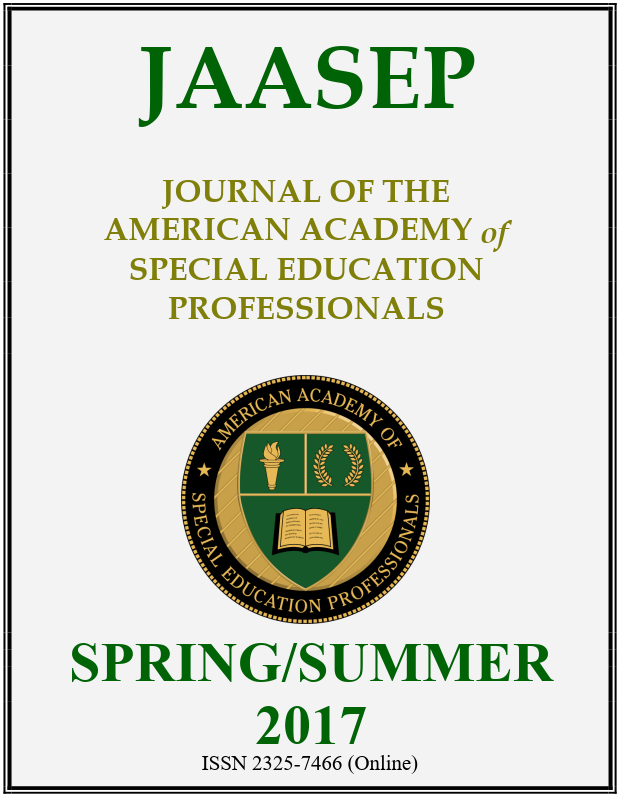Variables Affecting the Amputees’ Reactions Artificial Limbs in the Kingdom of Jordan
Aro, T., Laakso, M., Määttä, S., Tolvanen, A., & Poikkeus, A. (2014). Associations Between Toddler-Age Communication and Kindergarten-Age Self-Regulatory Skills. Journal Of Speech, Language & Hearing Research, 57(4), 1405-1417. doi:10.1044/2014_JSLHR-L-12-0411 DOI: https://doi.org/10.1044/2014_JSLHR-L-12-0411
Bakracevic Vukman, K., & Licardo, M. (2010). How Cognitive, Metacognitive, Motivational and Emotional Self-Regulation Influence School Performance in Adolescence and Early Adulthood. Educational Studies, 36(3), 259-268.
Baumeister, R., Vohs, K., & Tice, D. (2007). The Strength Model of Self-Control. Current Directions in Psychological Science, 16(6), 351-355. DOI: https://doi.org/10.1111/j.1467-8721.2007.00534.x
Sage Publications, Inc. Bodrova, E., & Leong, D. (2008, March 1). Developing Self-Regulation in Kindergarten Can We Keep All the Crickets in the Basket? Retrieved June 7, 2015.
Conway, A. (2009). Neurophysiological basis of self-regulation in children and youth. Reclaiming Children and Youth, 17(4), 16-22. Retrieved from http://ezproxy.snhu.edu/login?url=http://search.proquest.com/docview/214192533? accountid=3783
Demirtas, V. Y. (2013). SELF-REGULATION STRATEGIES OF THE SIX-YEAR-OLD PRE SCHOOL CHILDREN. International Journal of Academic Research, 5(2), 264-273. doi:10.7813/2075-4124.2013/5-2/B.42 DOI: https://doi.org/10.7813/2075-4124.2013/5-2/B.42
Entwisle, Doris R., and Karl L. Alexander. 1998. ""Entry into School: The Beginning School Transition and Educational Stratification in the United States."" Annual Review of Sociology19:401-23.-.1998. ""Facilitating the Transition to First Grade: The Nature of Transition and Research on Factors Affecting It."" Elementary School Journal 98:351-64. DOI: https://doi.org/10.1086/461901
Garner, P. W., & Waajid, B. (2012). Emotion Knowledge and Self-Regulation as Predictors of Preschoolers' Cognitive Ability, Classroom Behavior, and Social Competence. Journal of Psychoeducational Assessment, 30(4), 330-343. DOI: https://doi.org/10.1177/0734282912449441
Graziano, P. A., Calkins, S. D., & Keane, S. P. (2011). Sustained Attention Development during the Toddlerhood to Preschool Period: Associations with Toddlers' Emotion Regulation Strategies and Maternal Behaviour. Infant And Child Development, 20(6-), 389-408. DOI: https://doi.org/10.1002/icd.731
Lim, S. M., Rodger, S., & Brown, T. (2010). Assessments of ""Learning-Related Skills"" and ""Interpersonal Skills"" Constructs within Early Childhood Environments in Singapore"". Infant And Child Development, 19(4), 366-384. DOI: https://doi.org/10.1002/icd.673
Moilanen, K. L. (2007). The Adolescent Self-Regulatory Inventory: The Development and Validation of a Questionnaire of Short-Term and Long-Term Self-Regulation. Journal Of Youth And Adolescence, 36(6), 835-848. DOI: https://doi.org/10.1007/s10964-006-9107-9
Myers, C. L., Bour, J. L., Sidebottom, K. J., Murphy, S. B., & Hakman, M. (2010). Same Constructs, Different Results: Examining the Consistency of Two Behavior-Rating Scales with Referred Preschoolers. Psychology In The Schools, 47(3), 205-216. DOI: https://doi.org/10.1002/pits.20465
Onchwari, G., & Keengwe, J. (2011). Examining the Relationship of Children's Behavior to Emotion Regulation Ability. Early Childhood Education Journal, 39(4), 279-284. DOI: https://doi.org/10.1007/s10643-011-0466-9
Panadero, E., Tapia, J. A., & Huertas, J. A. (2012). Rubrics and Self-Assessment Scripts Effects on Self-Regulation, Learning and Self-Efficacy in Secondary Education. Learning And Individual Differences, 22(6), 806-813. DOI: https://doi.org/10.1016/j.lindif.2012.04.007
Ponitz, C. C., McClelIand, M. M., Matthews, S., & Morrison, F. J. (2009). A Structured Observation of Behavioral Self-Regulation and Its Contribution to Kindergarten Outcomes. Developmental Psychology, 45(3), 605-619. doi:10.1037/a0015365 DOI: https://doi.org/10.1037/a0015365
Rimrn-Kaufman, S. E., Curby, T. W., Grimm, K. J., Nathanson, L., & Brock, L. L. (2009). The Contribution of Children's Self-Regulation and Classroom Quality to Children' s Adaptive Behaviors in the Kindergarten Classroom. Developmental Psychology, 45(4), 958-972. doi:10.1037/a0015861 DOI: https://doi.org/10.1037/a0015861
Sasser, T. R., Bierman, K. L., & Society for Research on Educational Effectiveness, (. (2012). The Role of Executive Functions Skills and Self-Regulation Behaviors in School Read Bakracevic Vukman, K., & Licardo, M. (2010). How Cognitive, Metacognitive, Motivational and Emotional Self-Regulation Influence School Performance in Adolescence and Early Adulthood. Educational Studies, 36(3), 259-268. DOI: https://doi.org/10.1080/03055690903180376
Society For Research On Educational Effectiveness, Schmitt, S. A., Pratt, M. E., & McClelland, M. M. (2014). Examining the Validity of Behavioral Self-Regulation Tools in Predicting Preschoolers' Academic Achievement. Early Education And Development, 25(5), 641-660. DOI: https://doi.org/10.1080/10409289.2014.850397
von Suchodoletz, A., Gestsdottir, S., Wanless, S. B., McClelland, M. M., Birgisdottir, F., Gunzenhauser, C., & Ragnarsdottir, H. (2013). Behavioral Self-Regulation and Relations to Emergent Academic Skills among Children in Germany and Iceland. Early Childhood Research Quarterly, 28(1), 62-73. DOI: https://doi.org/10.1016/j.ecresq.2012.05.003
Downloads
Article Information
- Article Type Articles
- Submitted May 3, 2017
- Published June 15, 2017
- Issue Spring/Summer 2017
- Section Articles
